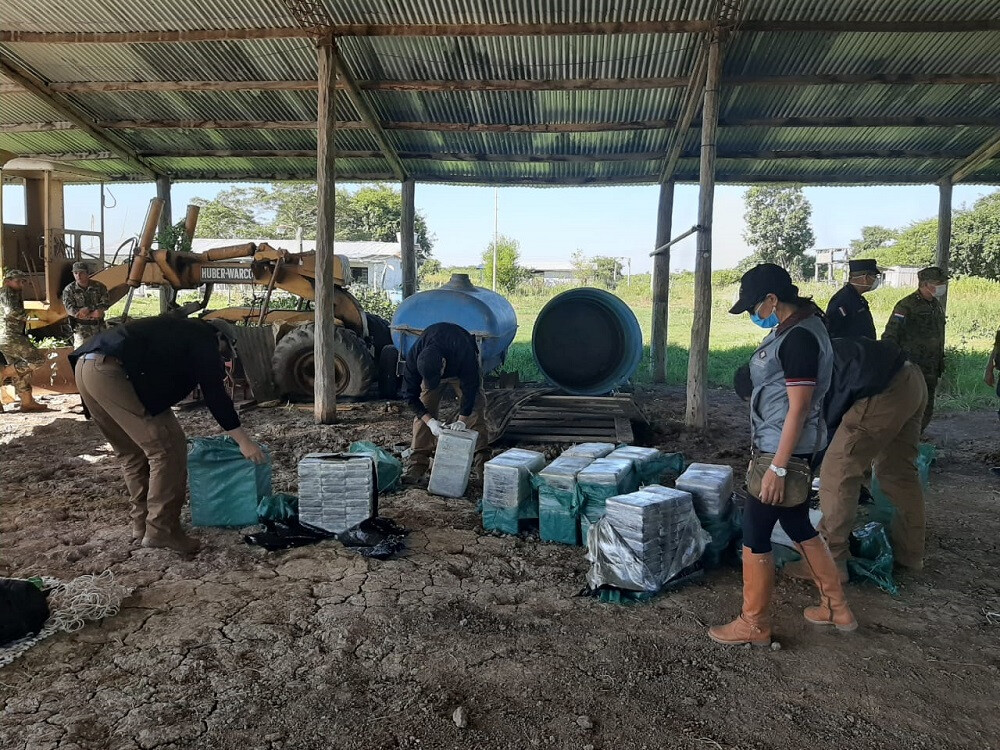
Recent incidents in a bustling area of the capital force us to confront the reality of extreme social unrest. This issue not only exposes the inability of security agencies to stem a tsunami of urban violence but also reveals the formidable power that drug trafficking and organized crime have gained in our country. The government must prevent criminal groups from continuing to recruit children, teaching them to use weapons, and training them for drug trafficking.
Last week, a delivery worker was shot dead in the San Francisco neighborhood of Asunción. A 16-year-old boy and a 21-year-old woman were arrested as accomplices in the incident, and police are investigating whether it was a robbery or an initiation ritual for a specific clan or gang. The detained boy's mother claims that a group threatened her son to confess.
These incidents are intertwined with several painful realities that the Paraguayan people experience daily. When we talk about drug trafficking, the large-scale drug shipments passing through our country, and the billions of dollars generated by these criminal operations, we rarely consider the immediate consequences for the population. One undeniable consequence is the high level of drug consumption. The 16-year-old boy's mother mentioned that her son became addicted to marijuana at an early age due to the influence of a criminal clan that dominates the San Francisco area. "I lived in that area, but young people fell into ruin and sold everything and left. In San Francisco, you can see nine- and ten-year-old children intoxicated and sleeping on street corners. No one can stop them."
Criminal groups such as the PCC (Primer Comando da Capital) and the Rotela Clan have taken over spaces neglected by the Paraguayan state, and as a result, these criminal groups easily recruit children and adolescents, teaching them to use weapons and training them for drug trafficking.
This situation is made possible by the weaknesses of our institutions and the complete absence of public policies that offer alternatives to the population. It should be recalled that the San Francisco neighborhood was a model project for an ideal neighborhood, but it became a hotbed of instability precisely due to the lack of public policy.
Let us also remember the data from the Paraguayan Consulate in Foz do Iguaçu, Brazil, which states that young Paraguayans are regularly arrested for hiding cocaine in bags, shoes, or drug-laced clothing. These are people without opportunities, trapped in despair—poor young people. They are exploited by criminal organizations when they want to help their families.
For decades, Paraguay has suffered from the absence of the state in various sectors. At the heart of this complex problem are the children, adolescents, and young people who are today exploited by drug trafficking and organized crime. Precisely because of this, in a country that offers only poverty, misery, exclusion, and inequality, these criminal organizations are even more organized than the government, advancing with clear and effective strategies.
Children and adolescents trapped in drug consumption and drug trafficking are the visible face of a country that does not provide opportunities for families and young people. They are not included in government plans, health or education initiatives, nor are public policies established for their integration into the labor market under decent and safe conditions, nor are the necessary living conditions provided for access to culture and sports.
Government authorities and officials must stop looking indifferently at the reality of the country and act urgently. Paraguay can no longer be a haven for organized crime and drug trafficking, nor can it allow drugs, violence, and illegal businesses to destroy everything. Because what future will destroyed childhoods and youth lead us to?
Child Exploitation by Drug Cartels: A Chronic Problem in Paraguay
The exploitation of children by drug cartels in Paraguay is not a new issue. It is a tragedy resulting from a complex interplay of deepening inequality and the state's inability to act effectively across society. Particularly due to its geographical characteristics as a major transit point for drug trafficking, Paraguay is even more vulnerable to human trafficking and child exploitation.
Vulnerability of Border Regions: Paraguay borders Brazil, Argentina, and Bolivia, countries that serve as major hubs for drug production and distribution. This geographical advantage makes Paraguay a crucial transit route for drugs, leading to increased activity by criminal organizations. Especially in border regions, impoverished young people and children often become easy drug couriers or are mobilized into drug manufacturing and distribution processes. They lack educational opportunities and struggle to make a living, making them easily susceptible to the allure of criminal organizations.
Spread and Impact of Organized Crime: The PCC (Primer Comando da Capital) and the Rotela Clan are known as the most powerful criminal organizations within Paraguay. They expand their influence from prisons, generate enormous profits through drug trafficking, and are even known to exert influence over the political and judicial systems. These organizations primarily target children and adolescents from impoverished or marginalized areas, inducing them to participate in criminal activities, teaching them how to use weapons, and training them to commit violence. In this process, children are exposed to drug addiction, and in severe cases, may even be involved in violent crimes such such as murder.
Government's Role and Limitations: While the Paraguayan government recognizes the severity of these issues, it faces limitations in effective countermeasures. Widespread corruption and deficiencies in the judicial system further fuel the activities of criminal organizations. Furthermore, the lack of child protection systems and the absence of educational and social welfare programs increase the risk of vulnerable children being exposed to crime. The international community urges the Paraguayan government to strengthen international cooperation and domestic policies to address human trafficking and child exploitation, but visible progress remains minimal.
Importance of Social Awareness and Effort: To solve these problems, strong political will from the government, along with improved social awareness across society, is essential. The media and civil society must continuously raise awareness of the severity of child exploitation and urge the government to take responsible action. Furthermore, efforts are needed at the community level to provide positive alternatives such as education, culture, and sports to children and adolescents, protecting them from the allure of crime. The war on drugs must go beyond mere law enforcement; it requires a long-term approach that addresses the structural problems of society as a whole and protects future generations.
[Copyright (c) Global Economic Times. All Rights Reserved.]






























